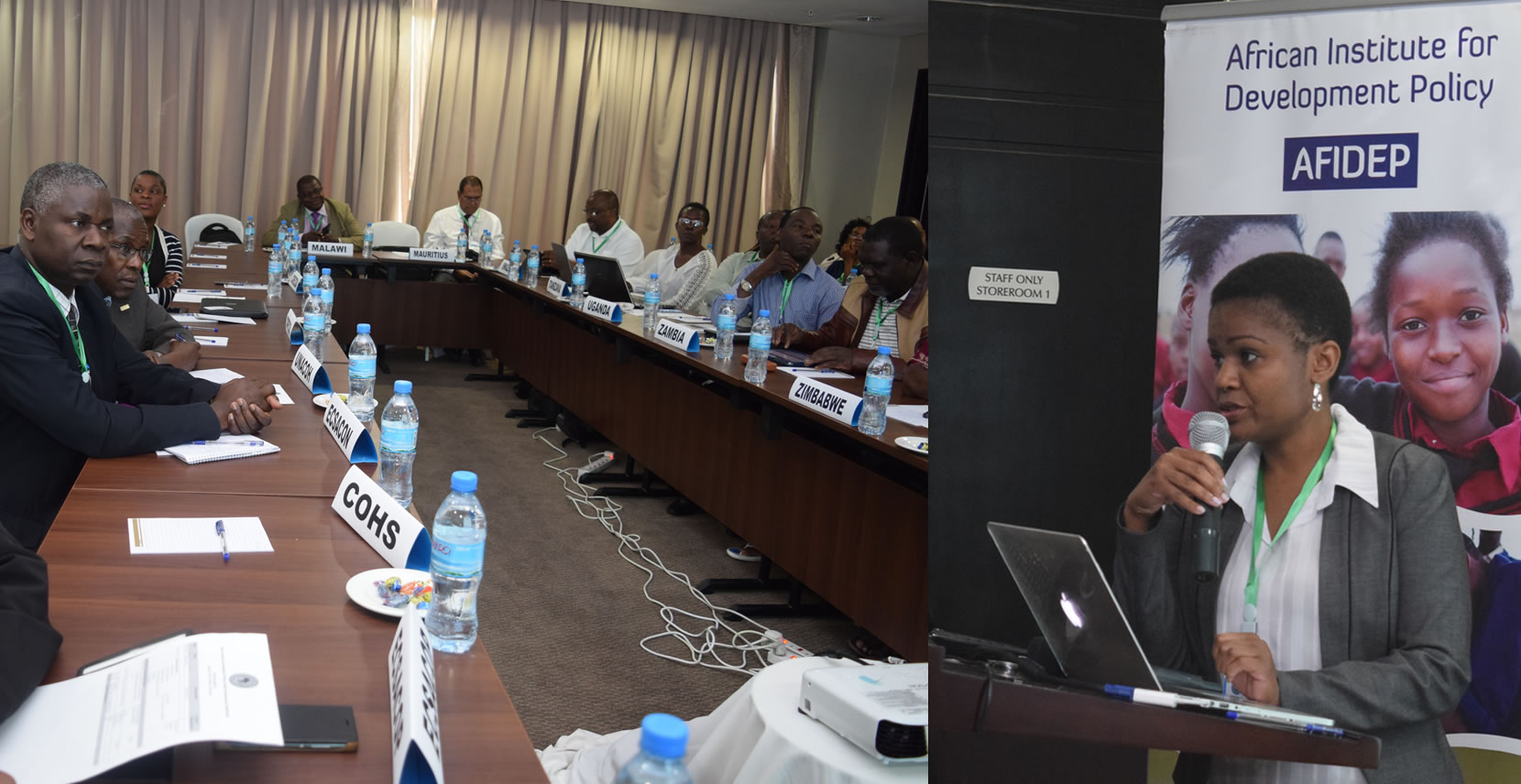Blogs

Policymakers, health professionals, scholars and other stakeholders in development have convened for a knowledge sharing forum on best practices in the health sector in Arusha, Tanzania, hosted by the East, Central and Southern African Health Community (ECSA-HC). Ahead of the main conference, which begins on 10th April 2017, AFIDEP convened a session on 9th April to share experiences and lessons learned in implementing the programme on strengthening capacity to use research evidence in health policymaking in Kenya and Malawi (SECURE Health).
Where we begun
Speaking about the genesis of the programme, Dr. Rose Oronje (Director, Science and Evidence Uptake, AFIDEP) discussed the resolution by the ECSA Health Ministers Conference (HMC) in 2009, to improve the generation and use of health research in policymaking. The growing need to address the gaps in the capacity of policymakers to use evidence in policy formulation at the time, saw AFIDEP, ECSA-HC and other partners design the programme. The SECURE Health programme, which has been implemented in Kenya and Malawi since 2013, recently came to a close in February 2017.
Making a difference
At institutional level, the programme has provided policymakers in both Kenya and Malawi with a roadmap that shall facilitate operationalisation of evidence-informed policymaking (EIPM). The programme has produced Guidelines for Evidence Use in Policymaking, aimed at supporting formulation of sound policies in African countries. As noted by Dr. Oronje, the programme has ensured that EIPM is entrenched within existing government frameworks such as Malawi’s Knowledge Sharing Platform (KTP). The advantage with this is that EIPM shall be an institutional function that shall outlive individuals who have adopted the use of evidence in policy formulation.
Similarly, in Kenya, the SECURE Health programme began implementation at a time when the Ministry of Health established its Research and Development Division. The programme was therefore integrated as part of the Division’s annual operations. As noted in the discussions at the forum, institutionalisation of EIPM functions not only ensures sustainability of a culture of evidence use in government, but also ensures ownership of the new way of conducting business among policymakers. Cumulatively, this creates a favourable climate for the use of evidence in policymaking. Furthermore, the programme has stimulated dedication among policymakers towards use of evidence in policymaking. For instance in Kenya, the programme facilitated the formation of a Caucus to champion evidence use in the Kenya Parliament. In addition, the Kenya government has allocated funds to research and development at the Ministry of Health. The Ministry of Health has also included evidence use as a key indicator for the formulation of policies.
In Malawi, the College of Medicine (at the University of Malawi) is developing a module on EIPM that it intends to include in its graduate training programmes. This is geared towards ensuring that graduates are well trained in translating research evidence into decisions and programmes. At individual level, the programme has improved the skills of policymakers and their support staff such as researchers at the ministries of health and parliaments in both Kenya and Malawi. The trainings were focused on building capacity to access, assess, synthesise and utilise evidence in policymaking processes.
Not without challenges
While there have been several successes, the programme has encountered challenges in getting political commitment from top level policymakers such as cabinet and principal secretaries. However, championing by other policymakers in both the ministries of health and parliament has given momentum to what could transform the policymaking landscape in Africa. Research evidence shows that most policies in Africa are formulated based on intuition, political and personal interests, among other factors. Changing the manner in which African policies are formulated therefore, has been the core of the SECURE Health programme.
A word from the champions
Dr. Damson Kathyola, Malawi’s Director of Research at the Ministry of Health is one of the policymakers championing the use of evidence in Malawi’s policymaking processes. Speaking at the forum, Dr. Kathyola noted that for Africa to make progress [in development], all relevant stakeholders need to recognise the relevance of evidence in policymaking. He also noted that policymakers and researchers are often on opposite sides of the policymaking divide. However, this divide needs to be bridged in order for policies to be responsive to the continent’s challenges. “[The] formulation of public policy is messy. [We therefore] need to create rapport between researchers and policymakers,” he said. Dr. Kathyola also noted that in order to ensure the culture of evidence use is embedded within the Ministry of Health’s operations, the Ministry intends to integrate regular dialogues on evidence in the work of the Malawi Public Health Institute. These will facilitate regular discussion on the evidence needs and gaps on urgent health issues in the country.
A key success of the programme’s work in Malawi has been the buy in among policymakers not only in the Ministry of Health, but also Parliament. Ms. Velia Mayonga, Chief Research Officer at the Malawi Parliament noted that Parliament is now seeking to ensure a 2 percent budgetary allocation towards research that will inform policymaking.
We’ve only scratched the surface
As noted by majority of the delegates at the forum, Africa has a long way to go in as far as the use of evidence in policymaking is concerned. While there are efforts to use evidence in policy formulation in different countries, work to strengthen the capacity of policymakers to use evidence in policy formulation has just begun. For instance, policymakers at other levels of governance such as counties in Kenya, and districts in Malawi, also need capacity building so they can support and complement efforts of policymakers at the national level. More resources from different stakeholders therefore, are needed. While not all research is relevant for policymaking, there is need to ensure that academic and research institutions generate research that addresses Africa's development challenges. Click To TweetAs noted by Prof. Ruth Nduati from the University of Nairobi, graduates from universities and other institutions of higher learning need better training in research. This will ensure research evidence is of high quality, and where it is relevant for policymaking, the evidence shall effectively inform policy formulation.
In addition, the role of other players in the policymaking ecosystem should not be downplayed. For instance, different knowledge intermediaries such as communication and knowledge translation experts, journalists, among others, are critical to bridging the gap between research and policymaking. Efforts to support evidence-informed policymaking in Africa therefore need to integrate all players to ensure that policies are not only responsive to the continent’s development challenges, but also steer countries towards sustainable development.
Related Posts





